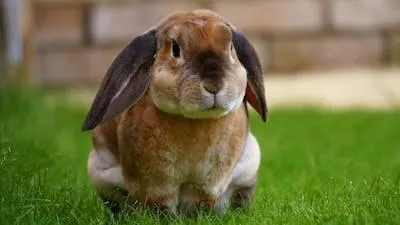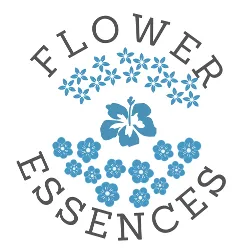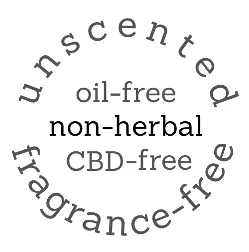Cats, Dogs, Horses, Small Pets, Birds, Poultry & Reptile
(How to Use with Fish is below)
read our pet testimonials & articles about
Pint-sized Well-being Bliss

8 Rabbit Anxiety Symptoms-A Basic Guide
8 Rabbit Anxiety Symptoms
Rabbits are gentle and social creatures that can experience anxiety in various situations, affecting their overall well-being and quality of life. Recognizing the signs of anxiety in rabbits is crucial for providing appropriate care and support to help alleviate their distress. In this comprehensive guide, we'll explore common anxiety symptoms in rabbits, potential causes, and strategies for promoting a calm and secure environment for these beloved pets.
Behavioral Indicators
Rabbits express anxiety through a range of behavioral indicators that may include restlessness, excessive grooming, teeth grinding, thumping their hind legs, hiding, or aggression. Changes in eating or drinking habits, such as loss of appetite or excessive drinking, can also be signs of underlying anxiety. It's essential for rabbit owners to observe their pet's behavior closely and note any deviations from their normal routines.
Physical Symptoms
Anxiety in rabbits can manifest in physical symptoms such as trembling, rapid breathing, hunched posture, foot stomping, walking in circles, or digestive disturbances. In anxious situations, rabbits' eyes may seem dull and glossed over. Some rabbits may develop fur loss or skin lesions from over-grooming due to stress. Chronic anxiety can weaken the rabbit's immune system, making them more susceptible to illnesses and infections. Regular health checks by a veterinarian are essential for monitoring the rabbit's physical condition and addressing any medical issues promptly.
Environmental Stressors
Environmental factors play a significant role in triggering anxiety in rabbits. Loud noises, sudden movements, changes in routine, or the presence of unfamiliar animals or people can all contribute to feelings of fear and insecurity in rabbits. Additionally, inadequate housing conditions, such as cramped living spaces, poor ventilation, or insufficient hiding places, can exacerbate anxiety in rabbits. Providing a calm and enriched environment that meets the rabbit's physical and psychological needs is essential for reducing stress and promoting well-being.
Situational Stressors
Situational triggers can provoke anxiety symptoms in rabbits, leading to a range of behavioral and physical manifestations. Common situational triggers include loud noises, sudden movements, changes in routine, unfamiliar environments, and the presence of unfamiliar animals or people. When exposed to these stressors, rabbits may exhibit signs of anxiety such as restlessness, excessive grooming, teeth grinding, thumping hind legs, foot stomping, or walking in circles. Additionally, rabbits may become withdrawn, hide, or display aggression as coping mechanisms for their anxiety. Understanding and recognizing these situational triggers is crucial for providing a supportive and nurturing environment for rabbits, minimizing stress, and promoting their overall well-being. By addressing anxiety symptoms and implementing appropriate management strategies, rabbit owners can help their pets feel safe, secure, and at ease in their surroundings.
Social Interactions
Rabbits are social animals that thrive on companionship and interaction with conspecifics. The absence of a bonded companion or inadequate socialization can lead to feelings of loneliness and anxiety in rabbits. Introducing a compatible rabbit companion or providing opportunities for supervised socialization with other rabbits can help alleviate feelings of isolation and promote a sense of security and comfort.
Handling and Restraint
Improper handling or restraint techniques can cause anxiety and fear in rabbits, leading to stress-induced behaviors such as biting, scratching, or struggling to escape. It's essential for rabbit owners to approach handling with gentleness and respect for the rabbit's boundaries. Building trust through positive reinforcement and gradual desensitization can help rabbits feel more comfortable and secure during handling and restraint.
Medical Conditions
Underlying medical conditions, such as dental problems, gastrointestinal issues, or urinary tract infections, can contribute to anxiety symptoms in rabbits. Pain or discomfort from untreated medical conditions can cause rabbits to exhibit signs of distress, including changes in behavior or appetite. Regular veterinary check-ups and prompt treatment of any health issues are essential for maintaining the rabbit's overall well-being and reducing anxiety.
Punishment / Negative Reinforcement
Stress from negative reinforcement or punishment can significantly impact a rabbit's well-being and exacerbate anxiety symptoms. Rabbits are sensitive animals that respond poorly to harsh treatment or punishment-based training methods. When subjected to negative reinforcement or punishment, rabbits may become fearful, stressed, and anxious. This can manifest in a variety of behavioral and physical symptoms, including trembling, hiding, decreased appetite, and gastrointestinal disturbances. Furthermore, repeated exposure to punitive measures can erode the bond of trust between the rabbit and their caregiver, leading to long-term behavioral issues and emotional distress. It's essential for rabbit owners to employ positive reinforcement techniques and gentle handling methods to promote a safe and nurturing environment for their pets. By fostering a relationship based on trust, respect, and compassion, owners can help alleviate stress and anxiety in rabbits, promoting their overall well-being and quality of life.
Conclusion
Recognizing and addressing anxiety symptoms in rabbits is essential for promoting their well-being and ensuring a happy and fulfilling life. By understanding the signs of anxiety and implementing appropriate management strategies, rabbit owners can help alleviate their pet's distress and create a calm and secure environment where they can thrive.
With patience, compassion, and proactive care, rabbits can overcome anxiety and enjoy a peaceful and contented existence as cherished companions.
A Trained Animal Communicator Connects with Your Pet
With every order, a trained animal communicator connects with your pet to choose the right blend of flower essences
(e.g. Bach Flower Essences) for calming their anxiety. Custom blended flower essences are natural pet calming products.






Calm Animal Solutions
Calm Animal Solutions offers customized, natural remedies for dog anxiety, and are calming for cats. Plus, we create blends for horses, small animal pets, birds, poultry, reptiles, and fish.
#CalmAnimalSolutions
on Instagram.
©2024, Catherine Winfree. All rights reserved.
Mandatory FDA Notice: The statements made regarding Calm Animal Solutions have not been evaluated by the Food and Drug Administration. These products are not intended to diagnose, treat, cure, or prevent any animal disease. Although the ingredients in Calm Animal Solutions are generally regarded as safe, you are encouraged to consult your veterinary before using any essence product (such as Bach Flower Essences, for example).
A Trained Animal Communicator Connects with Your Pet
With every order, a trained animal communicator connects with your pet to choose the right blend of flower essences (e.g. Bach Flower Essences) for calming their anxiety. Custom blended flower essences are natural pet calming products.





Mandatory FDA Notice: The statements made regarding Calm Animal Solutions have not been evaluated by the Food and Drug Administration. These products are not intended to diagnose, treat, cure, or prevent any animal disease. Although the ingredients in Calm Animal Solutions are generally regarded as safe, you are encouraged to consult your veterinary before using any essence product.

Home | Contact | Terms | Privacy Policy | About Catherine
©2024, Catherine Winfree. All rights reserved.


